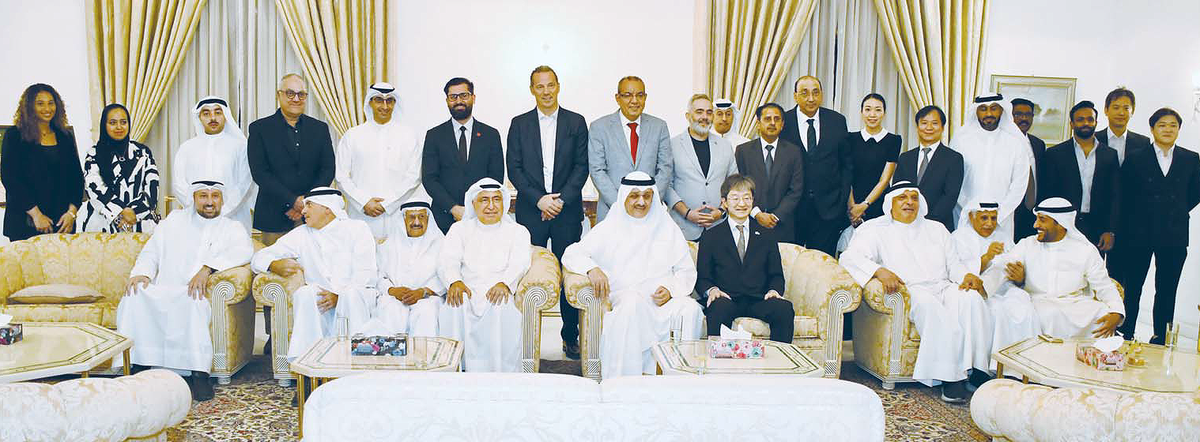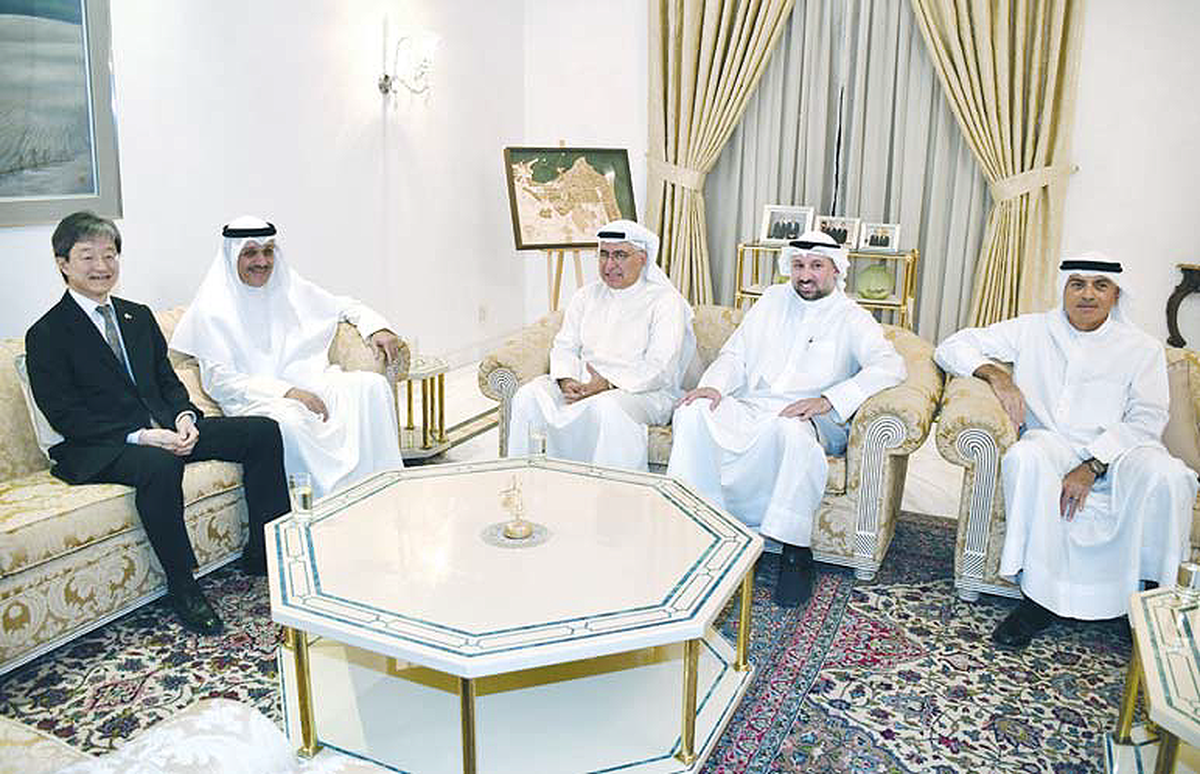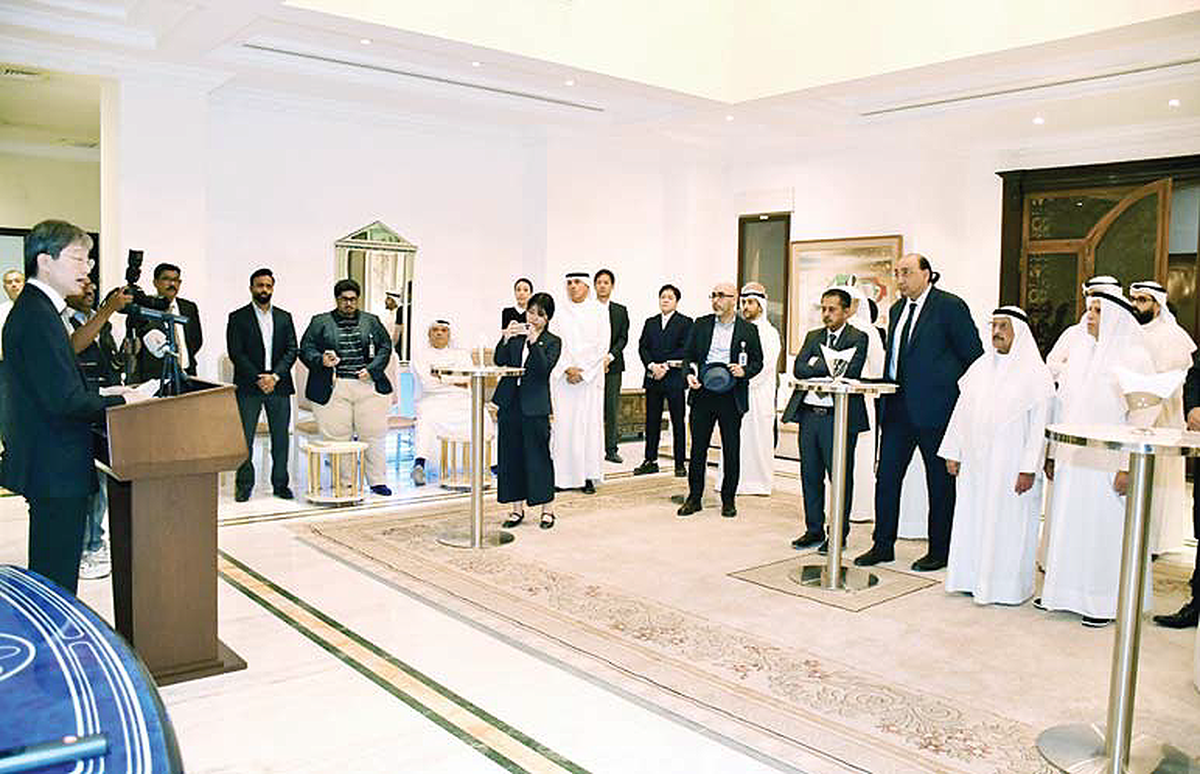19/05/2025
19/05/2025

Mukai expressed his pride and gratitude for the presence of the guests, stressing that the Diwaniya is a strategic opportunity to revive the Japanese-Kuwaiti Business Committee at the governmental level and exchange views on the future of trade and investment cooperation between the two countries. He pointed out that the current phase is a turning point in economic relations between the two countries, calling for strengthening cooperation in sustainable development, social responsibility, and the green economy. He affirmed that Japan is one of the largest global investment markets, with capital investments reaching approximately $700 billion in 2023. He urged the Kuwaiti businesspersons to explore the available opportunities, particularly through the Kansai-Osaka Expo, which was launched in April and will continue for six months.
He revealed the Expo showcases advanced Japanese technologies, such as room-temperature hydrogen production devices, carbon dioxide capture and emission technologies, and industrial fuel production. He said these technologies are plausible solutions for the realization of Kuwait’s goal to achieve carbon neutrality by 2050. He also cited the perovskite solar cells developed by Panasonic, which can be installed on windows and are currently used in Toyota cars that charge while driving, making them ideally suited to the sunny environment in Kuwait. In the healthcare sector, he highlighted the regenerative medicine technologies using IPS cells, which offer advanced therapeutic capabilities, calling for investment in them and their use within the healthcare system in Kuwait. He also talked about the contributions of major Japanese companies, such as Mitsubishi, Toshiba and JERA, to infrastructure and energy projects in Kuwait.

He asserted that these projects are not merely commercial activities, as they are rather contributions to improving the quality of life. He was quick to add that these companies are facing challenges, such as the slow bidding process, delayed procedures, and lack of focus on reducing emissions. He revealed the Japanese government is engaged in a serious dialogue with the Kuwaiti side to address these challenges, calling on decision-makers to support these efforts to improve the joint business environment. He affirmed the embassy’s readiness to provide all forms of support to Kuwaiti businesspersons, wishing to introduce Japanese products and technologies to the local market. He is hoping that Kuwait will become a regional center for adopting Japanese innovations and exporting them to the Gulf states, especially Saudi Arabia and the United Arab Emirates (UAE).
On the other hand, Mubarak Al-Sayer, Executive Board Member of Al-Sayer Group, presented the history of the long-standing partnership with Japan, dating back to 1954, when the group became the first distributor of Toyota vehicles in the Middle East, thanks to his late father, Nasser Mohammed Al-Sayer. Al-Sayer explained that this relationship has evolved into a strategic partnership spanning more than seven decades, making Al-Sayer Group the largest importer of Japanese goods in Kuwait, including major brands like Toyota, Lexus, Hino, Hitachi, Kawasaki, Yokohama, Akai, Sakai, JCB, and Canon.

He asked the Japanese government to facilitate entry for Kuwaitis by granting visas upon arrival, stressing that the Kuwaiti people’s passion for Japan is growing in the fields of education, entertainment, and commerce. He affirmed Al-Sayer Group’s commitment to continuing its longstanding partnership with Japan for future generations, stating that “this partnership is not only a legacy we cherish, but a future we are working hard to consolidate.
Al-Seyassah/Arab Times Staff


